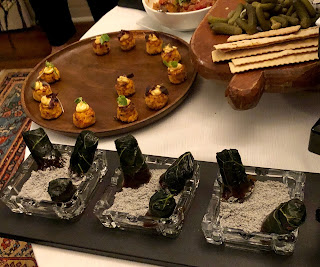With a conscious effort to heal what’s ailing us—whether through standing up for ourselves, letting go, choosing battles, wise counsel, medical care, finding unconditional support from those who love us, listening to a podcast that brings hope, taking a nap, taking a deep breath, going to sleep early and knowing tomorrow may look better with fresh eyes— we can turn the tide. Humans have evolved to adapt, but it’s not always best to take adaptation lying down. Things can get better. One way to prevent getting sucked down the wormhole of despair is practicing gratitude. Granted, sometimes feeling grateful when worn down is asking too much. For some it’s harder than others. Your inability to right the ship may be related to a heavy allostatic load, which I think of as a backpack one carries around. It might have an illness inside. Financial stress. The effects of intersectionality. Grief.
What are you grateful for? A cup of coffee? Education that provided you with the ability to read and comprehend these words? Maybe you are the type of person who bursts with gratitude for things large and small every day.
I guarantee that today we are all luckier than the folks down in Kentucky, Arkansas, and Illinois who lost everything this week. Having spent the month of May in those three states, this global warming catastrophe brought me to full blown tears. I pictured the beauty of rambling vine and moss covered countryside. The kind folks along the Ohio River. The Shawnee National Forest and all of its critters and greenery.
 |
| Calvert, Arkansas |
The worst of the Kentucky storm in Mayfield is a 23 minute drive from where I had stayed in Paducah. While I was there, I worked sitting at a little table overlooking a placid pond. It was the picture of serenity. How precarious it all is.
I cannot begin to imagine the shock and horror of December 11th, especially in Mayfield KY. Here is one way we can help. A tornado touched down right here in Chicago last year and removed almost all of the trees in the field of my childhood school. We will not be untouched by tragedy and pain in our lives. But we can find comfort in many different ways, including connecting with others, helping where we can, and not being too proud to ask for help when we need it.










